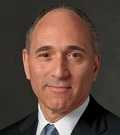 |
| Novartis CEO Joe Jimenez |
Swiss drugmaker Novartis ($NVS) last month became the first drugmaker to present the FDA with an application for a biosimilar, kicking off a new era in the U.S. that many believe will be a game changer for the industry. But from where CEO Joe Jimenez sits, it looks like no big deal for now.
The tipping point will come by around 2020, Jimenez predicts, after a host of pricey antibody biologics lose their patents. "By the year 2020, which is just 5 years from now, you're going to see a big impact," Reuters reports that Jimenez said during a meeting with journalists this week at the company's headquarters in Basel.
He figures it will take that long for the industry to figure out how the FDA is going to handle the new hybrids of the industry and how doctors, patients and payers are going to respond to them.
Novartis last month filed an application for a biosimilar of Neupogen, Amgen's ($AMGN) white blood cell booster for cancer patients. That was followed a couple of weeks ago by an application from South Korea's Celltrion for Remsima, a biosimilar of Remicade, the blockbuster anti-inflammatory treatment sold by Johnson & Johnson's ($JNJ) Janssen Biotech division. Last year Remicade generated $8.4 billion in sales, suggesting the potential that exists.
But Novartis' generic unit Sandoz, which Jimenez expects to be a big player in the biosimilar business, generated only $500 million from them in 2013. Sales are growing at 20% a year but that is off of a small base. Biosimilars have been available in Europe for 5 years but have yet to gain much traction, with doctors not certain about them and governments not yet requiring them in place of their reference products. The forecasts for biosimilars in the near future have run from $35 billion to $200 billion, but they are expected to grow exponentially from there.
Still, no one knows exactly what to expect. Celltrion and partner Hospira ($HSP) got approval last year in Europe for the Remicade biosimilar, called Inflectra there. But Europe's model for biosimilars is not the same as what the FDA is forging. So before submitting the drug for consideration in the U.S., Celltrion decided to do another 6 months of clinical trials to show its bioequivalency with Remicade, which goes off patent in the U.S. in 2016.
That illustrates the kind of regulatory hurdle, and cost, that Jimenez thinks will slow biosimilars in the next few years, Reuters reports. "I think in two to three years you're not going to see a big difference."
- read the Reuters story